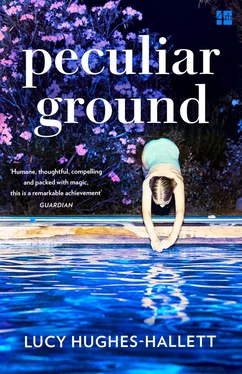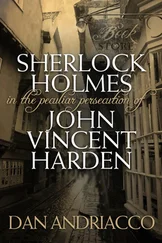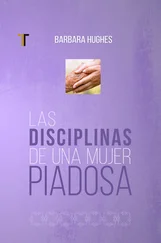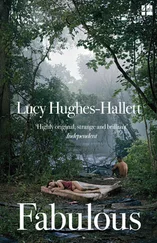*
So what about Nell’s mother? Why was she so seldom in evidence? Because she didn’t want to be, is why.
Chloe Lane had realised that to be inconspicuous was a precious pass to freedom. Chloe’s so sweet, said Lil. Chloe, could you be an angel and . . . Chloe, I cannot think what to do about . . . Why not ask Chloe? She’d do it (open the fête, chair the WVS, judge the school’s dressing-up competition) so much better than me . . . Chloe fits in so perfectly! I don’t know why I always look like a cockatoo . . . Chloe’s so clever with flowers . . . Chloe’s so clever . . .
Every single one of Lil’s compliments was an order, or a demand, or a subtle derogation. At Wood Manor Chloe was her own and her servants’ and children’s mistress. At Wychwood she was the agent’s wife. She stayed away. Dancing attendance was Hugo’s job.
*
The park was blond. Dry grass, exhausted by summer, lay aslant all one way, like the hair on an animal’s back. At midday the horse-chestnut trees were dark to blackness, the beeches purple. Bleached, the landscape became mineral – shining in shades of jet and copper and silver-gilt. Even the sun was sombre: light this bright and desiccating carried its antithesis within it. Only in the evening, the hour of Christopher’s liberation, would the light soften and waver, as the deer swam silently across the broad rides and the midges trod air above the lakes.
Antony left the noisy group by the pool and walked down, across the terrace, past the canal and on into the severe corridor of the double yew hedge. Halfway along was a trellised arbour with a stone bench and an unsteady wooden table. He sat. Directly opposite him was a gap in the hedge, framing a view of the park. Antony knew what would shortly appear there. He had seen it approaching. And there, sure enough, tightrope walking along the ha-ha’s stone lip, came Jack Armstrong.
This wasn’t a coincidence. He had seen, as he was seen. Seventeen years old, self-absorbed. Thin, slightly round-shouldered, long neck, vulnerable Adam’s apple, copper-coloured hair. He knew Antony was there. He didn’t look round, just paced past heel to toe, slow, arms outstretched for balance, back-lit. There’s a damp look to very young skin, a clamminess which is faintly repellent to all but those who lust after it, and for them, as marvellous as mother-of-pearl. Antony didn’t move. Jack crossed the gap. An interval. Deer fidgeted beneath the horse-chestnut trees in the middle distance. A Land Rover crossed towards the home farm. Antony remained still. Then Jack reappeared, upside down, walking on his hands, almost made it across the gap, arms visibly trembling, tumbled, attempted a somersault, botched it and rolled out of sight with a snort.
Between the cliff of the hedge and the precipice of the ha-ha was a strip of grass, walled with yew on one hand, with nothing but air on the other. Open to the park, concealed from the garden. Antony stood up and walked through the gap: found him.
Helen, walking wet-haired and barefoot along the green corridor, saw Antony go. Inquisitive, she followed onto the grassy ledge. Seeing what had drawn him, she stepped quickly back.
*
After lunch the grown-ups went quiet. Most of them were under the cedar tree, Helen and Antony on rugs, Benjie hogging the swing-seat. In the drawing room Christopher was dozing. Nell came in, silent in her sandshoes, took two pearl-grey damask cushions, and carried them off, as hasty and triumphant as a dog with a stolen cutlet, to the wedge of space between a high-backed sofa and the wall. Stillness. Nell’s small shuffling noises as she made her nest. A book sliding out of Christopher’s hand and down the slope of his thigh. Voices from the tennis court, as inconsequential and tinny as the chattering of mechanical toys. Nearer at hand the peacocks’ screaming, so eerie and yet so familiar to everyone in the household that they heard it not as sound, only as an intensification of atmosphere. In came Nicholas.
‘What’s going to happen?’ asked Christopher, opening his eyes, the rest of him still unmoved.
‘I don’t believe anyone, the main actors included, could tell you.’ Nicholas was leaning against a column, silhouetted against the French window and the deserted lawn. ‘Not a single one of them fully comprehends the possible options.’
‘Do you?’
‘No. But the ones I can think of scare me rigid.’
Like a nanny going off-duty, Nicholas had laid aside his teasing, bustling manner. He talked to Christopher as though continuing a long and searching conversation, even though this was the first time the two of them had spoken to each other directly that weekend.
‘But the bomb?’
‘It’s the tiger at the bottom of the garden and everyone knows the wise course is to leave it be, but everyone is itching to prod it with a stick just to see what happens. And at every point along the way towards whatever kind of climax we’re heading for, it’s possible to say, well, look, it’s all right so far. Until you reach the point where it really isn’t all right. But no one will know where that point is until they’ve passed it.’
‘Kennedy will want to prove how good his nerve is.’
‘Unfortunately.’
‘But what does Khrushchev want?’
‘Dear Christopher, if we knew that . . . Berlin is maddening for the Russians. It’s maddening for everyone. It’s geographical nonsense. For Khrushchev this rush for the exit is a humiliation. It shames him internationally. It weakens him with his own people.’
‘But no one, surely, is going to start chucking atom bombs about because a few thousand Germans want to live in a different part of Germany?’
‘I don’t think the Russians would. Not deliberately. But for most Americans Berlin is just a battlefield in a foreign war they thought they’d won. For them unleashing mayhem there is conceivable precisely because they can’t conceive of its reality.’
Nell lay, arms curled around her knees, imagining herself as round as a snail. In this very room, hiding behind this very sofa, she had heard her mother and Mrs Rossiter talk about atom bombs. Everyone, everyone, everyone in the whole world would die. And all the animals. And no one would ever be born again. Or if they were they’d be peculiar shapes and be so ill they’d just die almost at once. The only thing alive would be grasshoppers. She’d seen a grasshopper in Cornwall. Perhaps the whole world would be like a beach, dead sand and big green things that leapt, and had hard bodies, and horrid tickly legs. She couldn’t believe it. If it was true then why weren’t Mummy and Mrs R crying? She sometimes thought about old people and wondered why they weren’t all crying all the time because they must know they were going to die quite soon. But if everyone . . . The thought was too laborious to complete.
And now Mr Rossiter and Nicholas. They were so quiet and serious. Mr R was often like that, but he always smiled when he talked to her which made him not frightening. But Nicholas frightened her now because it was as though he had been in fancy dress and now he was his real self and all the pretending had been to cover up the awful thing. And they were talking so quietly. She knew she wasn’t supposed to have heard any of this. It was like when she found her uncle dressed as a pirate in Daddy’s dressing room, before her birthday party, and she had spoiled the surprise of the treasure hunt, and he was as embarrassed as she was and she had to go away quickly and pretend she hadn’t seen. Now she had to be not there. She fixed her eyes on the dark-haired angel hanging in the patch of the opposite wall that was all she could see past the sofa’s arm, and lay snail-still.
Christopher was talking now, his voice gentle, as though he was stalking a thought that would bolt if startled.
Читать дальше











